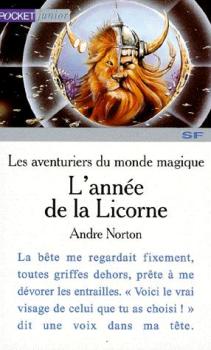The stories I wanted to read

I’m ten, and voraciously reading–bespectacled, and a head shorter than everyone in class, good at maths and utterly oblivious to the fact that I’m different from everyone else (only later will I work out that the string of people asking me “where do you come from” are comparing me to a class that’s 99.99% white and Catholic, and where the next most diverse person is the lone Ashkenazi Jewish kid, who probably isn’t having a great time either). I take to Science Fiction and Fantasy [1] like a fish to water: people fleeing this world for another; the wonders of space and faraway history where magic is real–where a farmboy can rise to become king; where ordinary people can stop evil in its track; and where science is a force for good, and the future has everyone equal without questions of creed and race.
There are a few… wrong notes, though. I cannot help but notice that Tolkien’s heroes are basically Europeans; and that the Easterlings–yellow-skinned or swarthy–seem to be mostly fighting on the side of evil. I cannot help but notice that most of the cool things in the future seem to be happening to men; and that, for all the talk about appearances not mattering, most women seem to need to be blonde, and young, and beautiful; the dark-haired, yellow-skinned ones mostly seem to be left by the wayside or to be antagonists.
In the midst of this, Andre Norton’s Year of the Unicorn is a breath of fresh air. Gillan is dark-haired and more clever than pretty; and she waltzes through the book on (it seems to me) nothing more than sheer strength of will, and a stubborn refusal to be left behind, or to take anything at face value. When she does get left behind, she fights tooth and claw to find her husband; and make a place for herself in a world that doesn’t want her.
I love Gillan; and I reread the book over and over. It’s not, after all, so hard to see why.
There’s a lot of books in my reading that feature China, or some representation of the Far East–I read them all like I read invented worlds, because the China they depict is so out of touch with my family stories (I won’t say my family stories are all positive! Vietnam has… a complicated relationship with China)–surely they have to be about some kind of fictional China/Far East that doesn’t exist. They speak of martial arts and inscrutable, passive people awaiting to be saved; of some fount of mystical wisdom that awaits the traveller. I think fake!China must be some kind of faraway land invented by writers, because it cannot possibly be the real thing.
I’m in my twenties, and I still love maths, and work to make a living out of it. I discover the American Library in Paris, and discover Le Guin; and it’s like a revelation: SF doesn’t have to be about equations and maths. The SF that speaks to me is about people in the future, about their interactions with technology and with each other; but I’m less interested in whether the technology is feasible. I design feasible technology for a living; and books that strongly focus on this as an element remind me too much of my day job.
As I’m checking out all the Le Guin books ever written from the library, I read The Word for World is Forest. Many, many years later, someone tells me that it’s an allegory of the Vietnam War. I blink, because I know all about the Vietnam War; because it’s shaped my entire childhood; and this isn’t the image that I have. My Vietnam War involves pain and heartache and displacement, and massive family upheavals–not this odd (though good) story about colonists savagely exploiting an alien species, and the natives rising up against them. I realise, then, that there are always several sides to a story; and that not all stories are given the same precedence.
I start writing. I have a master’s degree in science, and general knowledge of physics and electronics; and yet I still do not feel confident that I can write science fiction. I have this image–propagated through books and discussions on forums–that true science fiction is rigorous scientific extrapolation (whether that science is mathematics or anthropology), and I feel I don’t have the credentials for any of this. It will take me many, many years to understand that this set of expectations is stifling and silencing me; and that I’m my own worst enemy, telling myself not to write because I’m not good enough. That I’m far from being the only one in this position or with this experience–that definitions of “proper SF” can end up being a cage for writers and readers alike, an excuse to dismiss everything that doesn’t seem to conform.
I still read books. Most have silent women, or women who use their looks as a weapon. There are no female friendships. There are no mothers, no families. People drink coffee and speak English, and most of them are blond and pale-skinned. When someone who does look or sound familiar appears; when someone seems like they’re going to respect their ancestors and value their families–they’re the aliens. They’re the funny guys with odd customs colonists meet, the ones they try to commerce with or understand or (in the worst cases) subjugate. They’re the invaders that have to be fought back for the sake of civilisation.
And I think “what civilisation?” I wonder how people like me fare, in the future. Or in the re-imagined past of fantasy. Probably not well.
I publish my first stories. I go to cons. I meet other people, offline and online, and start having my first long discussions about genre. I start thinking about what SFF really is. I meet other POCs, other women; learn about feminism; read a lot of essays. I learn that I am not alone; that others have had those same experiences; that others struggled or are struggling, trying to reconcile their love of SFF with that feeling that those universes have passed them by.
And then it hits me: if I want to have a place in those futures, in those reimagined pasts, I’m going to have to be like Gillan. I’m going to have to forge ahead, in the footsteps of those that came before. I will write my own stuff. My universes do not have to be white, or scientific, or sterile and lonely. And, if I don’t write my own experiences, my own cultures–then who is going to write them for me?
I wish I could say it goes without a hitch from there on. That I don’t have the odd conversation (“you write wonderful aliens!” in reference to my future diaspora Vietnamese people); the shouts from various corners telling me I don’t write proper SFF. The nagging doubt that perhaps–just perhaps–they’re right, that there’s no place for me at this table. It’s nonsense, of course. It should be. But thirty years of conditioning are hard to break through; and pushing through boundaries sometimes feel like pushing through tar.
That’s me and SFF, I guess? I feel kind of embarrassed sharing this, but I think it needs to be said–I’m not writing because of politics, or because I want to preach (well, sometimes I do want to write about specific themes that speak to me. But who doesn’t?). At heart, I’m writing my stories: the stories I wanted to read as a child, the adventures in space where I don’t have to feel excluded; the fantasies where you can be small and dark-haired and Asian and still be a hero. At heart, I’m sharing my side of the story, and the things that matter to me–war and exile and devastation, relationships between mother and child and extended families and how these evolve and change in the future. I love SFF. I want to see it thrive and grow and change; and include more and more people from all walks of life. And some of those changes will be uncomfortable. And some of those new stories by new writers won’t be for me or won’t speak to me, and that’s quite fine, because they will speak to someone else.
I hope that things will continue to change. I hope that the taste for this kind of stories grows; that there will be a wider appetite for them as people discover them. I want a future where it’s ok to write the kind of stories I wanted as a child; and where people read them and enjoy them and it becomes a new, significant chunk of the field (and it’s already happening, to some extent, for which I am very grateful). I want the field to reach outwards, step after step after step; until the table is large enough to include all of us on the margins, and we all learn to appreciate and love each other’s experiences and conceptions of the future–for, if SFF isn’t about openness of mind and change, then what is?
[1]It will be many years before I am aware of science fiction as a genre and consciously seek it out; but even before that it makes up the bulk of my reading.

